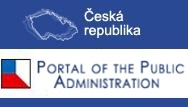Important days
13. 11. 2009
Decalaration of the Rights of the Child
The League of Nations was in 1945 replaced by the United Nations which, on 20th November 1959 declared the Charter of the Rights of the Child which is sometimes called as the Declaration of the Rights of the Child. The Declaration of the Rights of the Child, which the 14th session of the UN General Assembly declared fifty years ago, is a predecessor of the Convention of the Rights of the Child. The objective of the Declaration was to ensure happy childhood for children and the possibility to use rights and freedoms, stated in it, for the benefit of both children and society.
The American social worker Florence Kelley stated in the first half of the 20th century that owing to the increasing sensitivity towards children, the 20th century was possible to declare as "the century of the child". This title had become accepted usage among experts working with children and issues connected with children were getting among more and more prominent interests. As a consequence of this fact, the year 1979 was declared as the Year of the Child. Most states were taking right of the child into consideration in their decision-making process, and public policies were focused on improving living conditions of children. Bearing into mind necessity of improvement living conditions of children and respecting their fundamental rights, the UN General Assembly adopted on 20th November 1989 the Convention on the Rights of the Child.
The Declaration of the Right of the Child and the Convention on the Rights of the Child are based on the respect for the Charter of the United Nations which acknowledge equal dignity and equal and inalienable rights of all human beings, including children. The Convention on Rights of the Child was signed in New York on 30th September 1990 and was ratified by the Federal Assembly of the Czechoslovak Federal Republic on 7th January 1991. The ratification was transferred to both succession states as of the date of their formations; in case of the Czech Republic it was on 1st January 1993. The Convention on the Rights of the Child is an international convention which determines civil, political, economic social and cultural rights of the child. Observance of the Convention is supervised by the UN Committee for the Rights of the Child.
The Convention on the Rights of the Child defines for the first time the child as any other human being bellow the age of eighteen years. The definition of the age of the child is important in particular with regard to the issues of rights of children to protection. The other right which was for the first time defined in the Convention was the right of the child not to be separated from his or her parents. The principal change of the entire philosophy of the Convention was the right to respect and always decide in accordance with the best interest of the child.
And it is just the necessity to consider the best interest of the child in each decision in the everyday practice, not only in the everyday life of the child, but in case of every political decision, which should mean qualitative change and progress in the respect for children. The fact that the respect for the best interest of the child can be realized through the individual provisions and the respective particular rights is a significant contribution of the Convention.
There is an presumption that decision in the best interest of the child based on the knowledge of the development principles of the child, age peculiarities, development of the personality and basic physical, mental, social, emotional and intellectual needs of the child will increase the feeling of the personal well-being of the child which is the indicator of his quality of life.
And this is de facto the spirit, the ethos and the essence of the entire Convention on the Rights of the Child which is not focused on anything but on ensuring happy life of the child. The feeling of the personal well-being can be a criterion of this.
In addition to the Convention on the Rights of the Child, two Optional Protocols were adopted in 2000.
1. The Optional Protocol to the Convention on the Rights of the Child on the involvement of children in armed conflicts has also been ratified by the Czech Republic; nevertheless, the Czech Republic has been a black mark on the map of Europe as the Protocol has not been still ratified.
2. The Optional Protocol to the Convention on the Rights of the Child on the sale of children, child prostitution and child pornography
The concept of the Convention is based on "3P's" – provision, protection, participation. We can imagine that as three groups of rights that concern the provision for the child (rights focused on survival, upbringing and development), protection of the child (protection against violence, exploitation, abuse and harmful influence and its participation in decisions on matters which concern the child.
To assess the efforts of the Czech state in the sphere of rights of the child, we can state that we are traditionally successful in particular in ensuring conditions for survival, upgrading and development of children, seen from the point of view of their health, education, interest-based activities and such like.
In comparison with this fact we should state that that we fail in protection of the child against tobacco, alcohol (legal drugs), and all forms of the interpersonal violence, injuries and such like.
Based on the fact that children are very often victims of violence, the UN adopted a recommendation to the World Report on Violence against the Children and appealed to states to work out national strategies for the violence prevention, the purpose of which would be to increase protection of children against violence as a one of the principal right of children. The Czech Republic, as one of the first countries, worked out and adopted the National Strategy Child Violence Protection.
Participation of children in the decision-making processes that concern them at all levels – in the family, at school, during interest-based activities, at camps, in hospital, during their stay in special health or social facilities, in media, but also on pushing through and defending their rights in the society is often only formal and insufficient.
The Children-Friendly Europe Conference under the auspices of the Minister of Human Rights, Michal Kocáb, held in the framework of the Czech presidency of the EU Council, adopted a resolution on the appointment of a children's ombudsman in all European countries. It is necessary to add that our state belongs among minority of states which have not had their children's ombudsmen yet and therefore the voice of children cannot be easily heard in the society. This fact documents typical downgrading of children which is so typical for our society.
The Minister for Human Rights is nearly symbolically, on the occasion of the 50th anniversary of the Declaration and 20th anniversary of the Convention on the Rights of the Child, submitting the basic principles of the Act on the Appointment of the Children's Ombudsman in the Czech Republic to the government.
It is not possible to ignore the fact that this year is also the year of the 60th anniversary of the foundation of the Council of Europe – an institution for which human rights are one of basic pillars. The Council of Europe, in the framework of the programme "Building Europe for and with Children" for the period 2009-2012, set two priorities - promotion of children's rights in compliance with the "best interest of the child" in the political practice and in the public life and the protection of children from violence. The Council of Europe declared in this year as its priority the participation of children and the respect for children's rights of children placed in the institutional care.
The Ministry of Foreign Affairs in the cooperation with the Government's Committee of Children's Rights of the Government Council for Human Rights and the UN Information Centre have organized the national celebration of the 50th anniversary of the Declaration of the Rights of the Child and the 20th anniversary of the Convention on the Rights of the Child.
The Government's Committee for Children's Rights adopted, at its session held on 19th October 2009, a declaration concerning rights of children, about which it would inform the participants of the meeting of children's ombudsmen on 20th November 2009 in the Cernin Palace in Prague The national celebration would not be complete without participation of children. Prior to the opening of the RE Project in Helsinki on 2nd December 2009, the National Children's Parliament will have its session on 21st November which will concern the children's participation. At the session it will be possible to hear the voice of children, their opinions, needs and wishes which will be presented at the all-European meeting in Finland.








